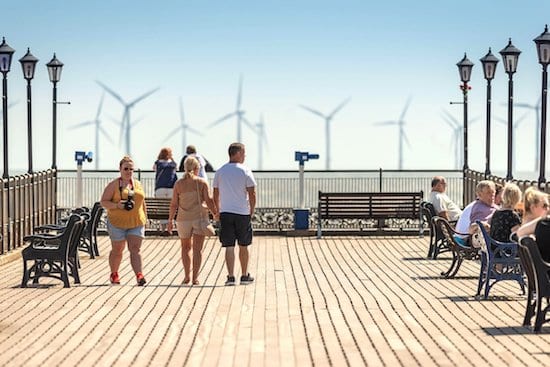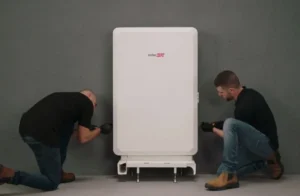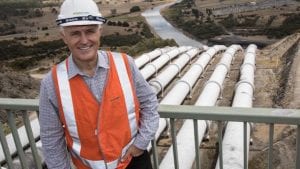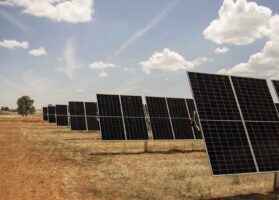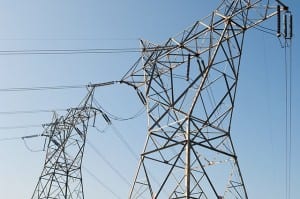Global hydropower and European renewable energy giant Statkraft announced Tuesday plans to build what it is calling the United Kingdom’s first virtual power plant to integrate wind, solar, battery storage, and gas which will have over 1GW of power.
Statkraft explained on Tuesday that the new virtual power plant will monitor the operations of over 1GW worth of wind power, solar power, battery storage, and flexible gas engines and will compare it with the constantly updating Day Ahead, On-the-Day, and cashout price forecasts. This will allow for real-time optimisation of power trading in the British energy market.
Statkraft is further planning to double the capacity of the virtual power plant by the middle of the year (the Northern Hemisphere’s Summer).
The increased flexibility provided by the virtual power plant will help facilitate the integration of intermittent power generation – such as that from wind and solar power – into the British electricity system, and subsequently help expand the UK’s renewable energy capacity.
“Our business model in the UK to producers of renewable power involves marketing renewable assets with maximum efficiency – for our partners, but also towards the power market,” explained Duncan Dale, Vice President Sales & New Products of Statkraft in the UK.
“The idea is to match renewable power production with market demand within seconds. The increasing share of renewable energy in the UK will require a maximum of flexibility in the British power grid. By integrating batteries and engines into the virtual power plant and optimising their operations we can provide this flexibility reliably.”
German power predictions and virtual power plant company energy & meteo systems will provide the virtual power plant software for the Statkraft virtual power plant project, which will connect, coordinate, and monitor decentralised power-generating sites, storage facilities, and controllable loads, via a common intelligent control centre.
By interacting across all these feeds, the system can act within various energy markets just as a conventional power plant would, and by combining these functions with optimised power forecasting, decentralised and fluctuating power sources can be integrated into the energy grid.
“We are excited to expand our cooperation with Statkraft,” said Dr Ulrich Focken, founder and Managing Director energy & meteo systems. “We are already successful partners in Germany and believe that this new project is an important step in enabling Statkraft UK to make the most of renewable energy.”
Statkraft is already involved in Europe’s largest virtual power plant, interconnecting more than 1,400 wind and solar installations with an installed capacity of approximately 12GW.
According to Statkraft, control signals, forecasts, and information about actual generation are exchanged between individual installations and the virtual power plant within seconds, meaning that generation can be shut down or restarted within seconds as necessary.
The virtual power plant consists of onshore and offshore wind power, solar energy, bioenergy, hydropower, and are generated by producers all across Germany.
“The virtual power plant connects these small power producers,” explains Andreas Bader, Vice President Sales & New Products. “This enables us to sell the renewable power and draw on the full flexibility of the renewable plants as if it were one large-scale reliable supplier. Moreover, the power producers do not have to sell the power themselves, with all the risks associated with fluctuations between supply and demand.”
“Because renewables are heavily dependent on weather, you need to know what the weather is doing. As we all know from everyday life, the weather forecasts are often wrong. Even five minutes before you sell the production from your wind park, you are not sure exactly how much you are going to produce.”
“You need to forecast and sell your production as efficiently as possible. The short-term market is highly volatile.”

